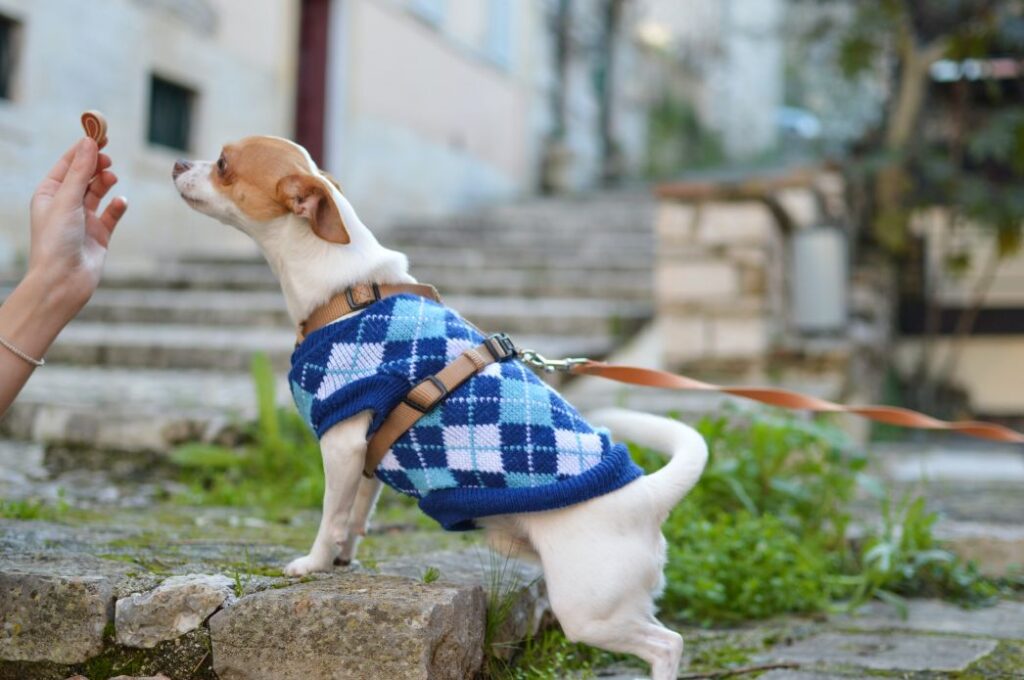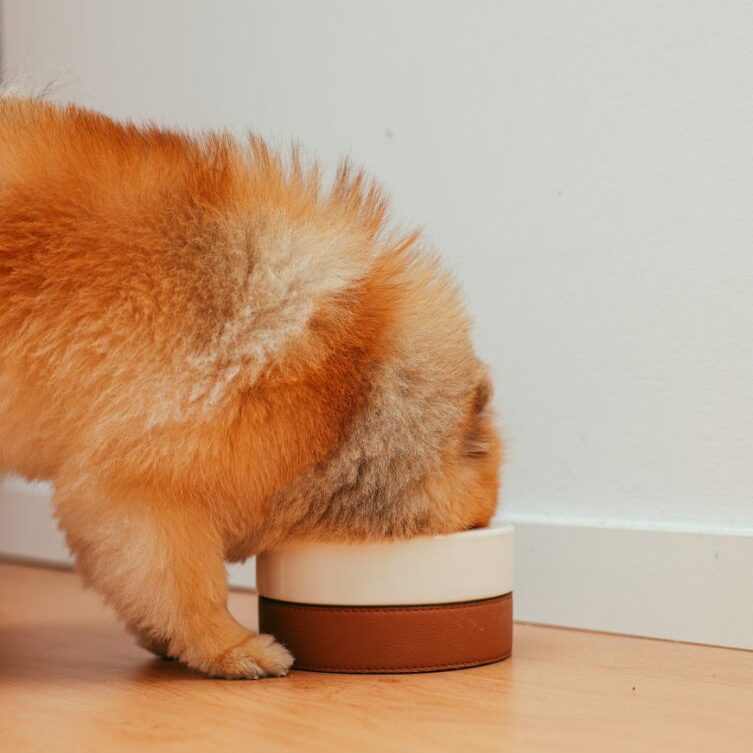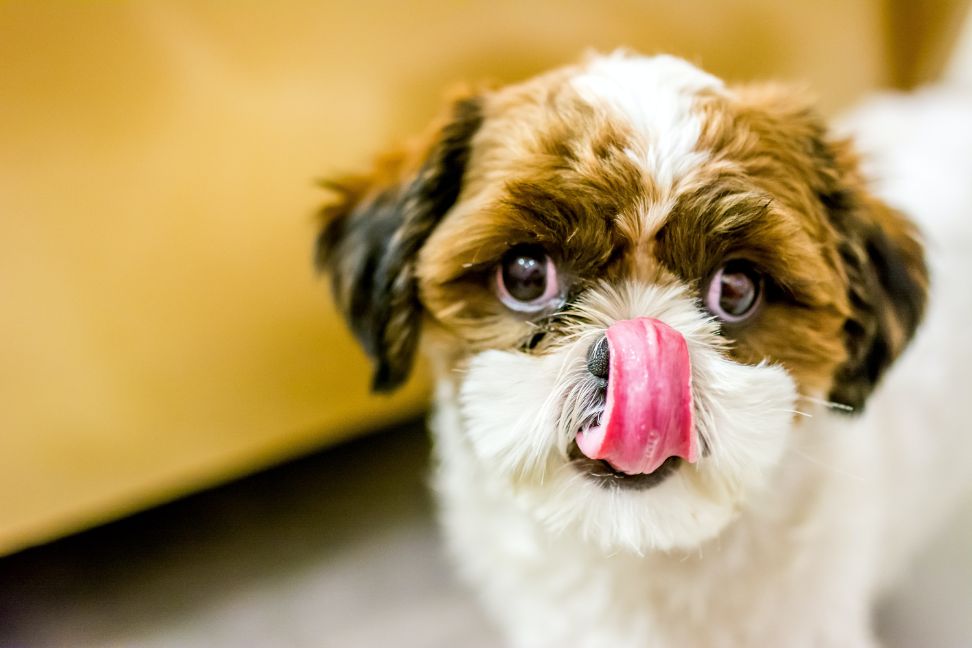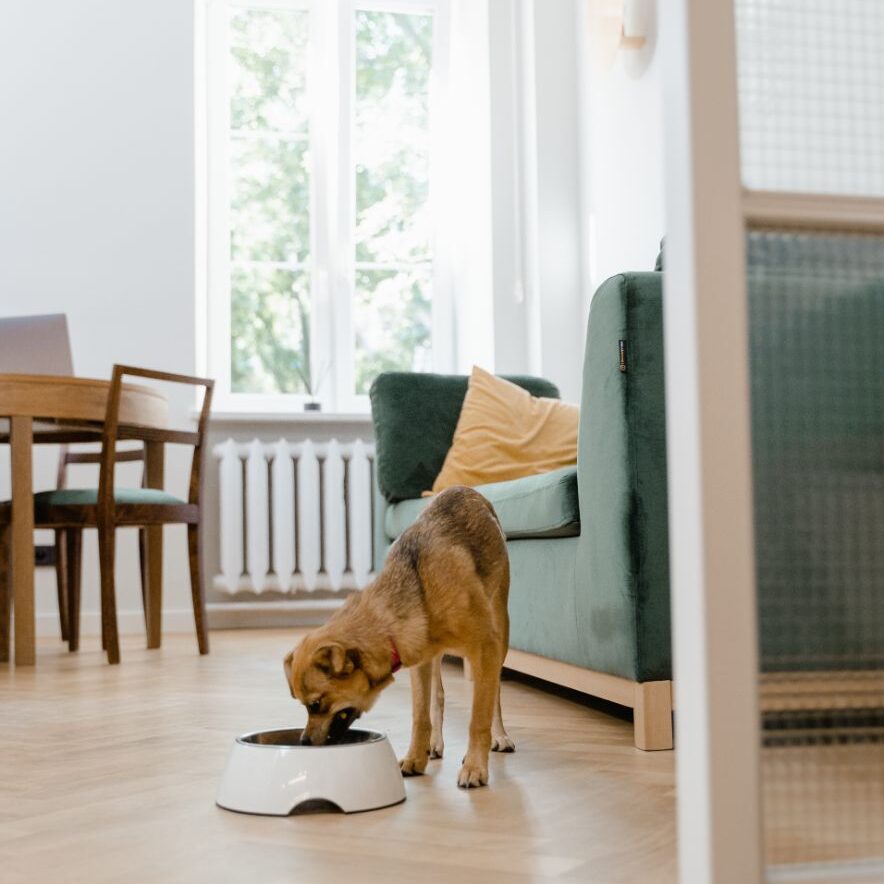Whether you’ve had dogs as pets for a long time or you just recently adopted your first puppy, it can be very upsetting when your dog refuses to eat. We examine the causes of puppies’ sporadic refusals to eat as well as how to determine when it’s necessary to consult a veterinarian.
Since puppies give us so much, it makes us very anxious when they act out of character. We are concerned when puppies refuse to eat because we are aware of how crucial it is for growing puppies to eat. Even though the majority of dogs can go a few days without food without experiencing any serious negative consequences, it is best to deal with the issue as soon as it arises.
There could be a number of reasons why your puppy isn’t eating much (or at all). Here are the most frequent ones along with solutions to help you reestablish regular mealtimes for your young dog.
Reasons Your Dog Won’t Eat
Similar to human beings, dogs can refuse food for a number of different reasons. These include:
Exhaustion
Puppies run around like crazy before collapsing into a sleeping pile of cuteness. Before he is ready to eat, your child may only need to take a nap. It’s alright for your dog to miss one feeding as long as he fills his bowl at the subsequent mealtime.
High Temperatures
When it’s hot, most people aren’t particularly hungry. Well, puppies can be the same way. When it’s hot outside, your dog might not be as hungry.

Distraction
Your puppy might be too excited to eat if there is a party going on, a new person or pet in the house, or a chance to play. As soon as everything calms down again, your pet should be prepared to eat.
Stress
Have the surroundings your puppy is in undergone any recent changes? such as a new house, animal, or person? Puppies may act differently if their surroundings have changed. Some puppies will continue to eat even if the world were to end, but some are more perceptive to their environment.
Your puppy may need to adjust, after all. But make sure that feeding times are as peaceful for your pet as possible, and think about moving your puppy’s food bowl away from other animals’ feeding areas.
Illnesses, Parasites, and Teething
One of the most prevalent symptoms of illness in dogs is anorexia, which can coexist with a fever if an infection is present. Anorexia is brought on by viruses that can be fatal, such as parvovirus.
Anorexia can also be brought on by distemper and other, less serious infections like an upper respiratory infection or intestinal parasites. Even teething can cause a puppy to be reluctant to eat.
Other times, a puppy may not want to eat due to stomach pain brought on by an ingested foreign body (such as a swallowed toy or piece of trash).
Prior to attempting any methods to induce your puppy to eat if your dog’s anorexia persists for more than a few meals, be sure to have any illnesses ruled out by your veterinarian.
Travel and Unfamiliar Surroundings

It’s possible that your dog won’t eat because of traveling or the strange surroundings if their appetite was fine before you took them on a trip or moved to a new place. Some animals may experience motion sickness, while others may experience anxiety or unease in unfamiliar environments.
Pickiness Or Behavior Issues
Some dogs are simply picky, while others may refuse food if it is served to them in an uncomfortable environment or from a bowl that is too high. Never assume that your dog is picky before ruling out other possibilities because a decreased appetite in dogs can be brought on by the illness.
Recent Vaccination
For many harmful and contagious dog diseases, vaccinations are fortunately available. Despite the fact that millions of animals have been saved by these injections over the past century, they occasionally have negative side effects. The majority of these, like the temporary loss of appetite in dogs, are minor and transient.
Too Many Snacks
It’s crucial that puppies receive some fundamental positive reinforcement training in order to learn appropriate behavior. But it typically takes a lot of treats to teach young puppies the dos and don’ts. If your puppy is eating a lot of treats, he might not be hungry for his regular meal.
If so, reward him during training sessions with bits of his regular kibble or consider purchasing special training treats so he gets the right nutrition throughout the day.
When to See a Vet?
- Diarrhea continues past 12 hours – sooner if your puppy is also vomiting
- There is blood in their diarrhea or vomit
- Your puppy’s gums are whitish or gray
- Your puppy is lethargic or weak
- Your puppy is obviously dehydrated – dry and tacky gums

Note: You can perform a skin tent test to determine whether you are dehydrated. Just lift your dog’s neck’s skin and fur there. If the skin and fur don’t return right away, your puppy is probably dehydrated. The skin will continue to be tented in cases of extreme dehydration. For puppies, this is a serious situation that requires immediate medical attention.
How to Get a Puppy to Eat Again?
Seek veterinary care if your puppy has additional symptoms or has gone a day without eating. Other than that, there are a few things you can do at home to motivate your dog to consume his subsequent meal.
See a Vet
It’s critical to rule out underlying causes like infections, GI issues, and parasites. Medication or brief dietary changes can frequently solve these issues. They can worsen if untreated, though. Additionally, your veterinarian can offer advice on how to promote eating.
Give It Time
It’s possible that your puppy just needs some time if she’s having trouble adjusting. Try to be as accommodating as you can while being patient with her. She can feel at home with a cozy crate, entertaining toys, and set playtimes.
Warm Food Up
Puppy eaters can be picky. In particular, if you are feeding them wet food, warming their meals might be beneficial. You can learn your pet’s preferences through trial and error.
Transition Dog Foods Slowly
To help puppies adjust, experts advise making any necessary food changes gradually over a 10-day period. Use roughly 10% new food and 90% old food on the first day, then gradually increase from there.
Mix It Up
If your pet is having trouble eating, try adding some table food, like peanut butter or chicken broth. Check the peanut butter to make sure it doesn’t contain xylitol, which sugar-free varieties frequently do. An alternative to just kibble is to try a mixture of canned and dry food.

Make Meals Fun
Both you and your puppy shouldn’t feel anxious when eating. Use puzzles or food dispensers to try to make the experience more interesting.
Establish a Routine
Similar to some people, puppies benefit from routines. It gives them a sense of what to expect, which may be useful if your dog is anxious. Try setting time aside for meals and feeding your puppy at that time every day.
Limit Treats
Pet parents may over-reward their puppies with delectable treats as a result of training (and the overall cuteness of their pets). The treats might need to be reduced if your puppy isn’t eating, though.
You may wonder whether your puppies can eat the food listed below: Adult Dog Food, Carrots, Eggs,
, Oranges, Bread, Pineapple, Popcorn.
Why It is Important for Your Puppy to Eat Properly?
An excellent, balanced diet is crucial for a growing puppy. Puppy diets must be specially formulated for them to have the best possible health and growth because they have special nutritional needs. The puppy’s long-term health may be harmed if they are not fed properly. When you give your puppy the right food, you are building the foundation for a healthy adult.
A well-balanced puppy diet will help:
- Obtain a healthy growth rate that is neither too fast nor too slow. For puppies of large and giant breeds, this is especially crucial.
- Support proper immune functions
- Prevent the possible occurrence of developing orthopedic issues in the legs and hips
Foods certified by the American Association of Feed Control Officials (AAFCO) are what you want to buy when choosing the best diet. This group is in charge of regulating the entire pet food business. Prior to going on the market, a perfect diet will also have undergone a feeding trial.
Given that different diets are recommended for small- and large-breed puppies, you should feed the appropriate diet. The right amounts of DHA should be present in a good puppy diet. The omega-3 fatty acid DHA is essential for the growth of the puppy’s brain and eyes.
How Many Times a Day Should a Puppy Eat?
Puppies need to eat several small meals a day because they have small stomachs, similar to human newborns. You can feed your puppy more frequently as it grows and in larger portions. Your veterinarian can recommend a schedule, but Gale says these are the general guidelines:
- 4 meals a day: Puppies that have recently been weaned, regardless of size, require four meals per day.
- 3 meals a day: Around 4 months of age, small breeds can start eating three meals a day, while larger breeds switch at 6 months.
- 2 meals a day: Starting between 4 and 10 months for small breeds and 6 to 12 months for large breeds, continue to feed your pet twice a day.

How Much Should a Puppy Eat?
Depending on the breed and size of the dog, puppies require different amounts of food. Check the feeding instructions on puppy food packages as a starting point. The total daily amount is listed in the feeding guides, so divide that amount evenly into the number of meals recommended for your puppy’s age, advises Gale.
Divide, for instance, 1 cup of food per day by 4, if the recommendation is for your 3-month-old puppy. As a result, you would give your dog a quarter cup of kibble four times per day. Amounts of food may need to be adjusted based on your dog’s weight and growth at each checkup; your vet can assist with this decision.
Conclusion: Your Puppy Will Get on Track
Why is your puppy not eating? To assist you in improving your puppy’s diet, we offer several tips.
Puppies gain strength and size through nutrition. A healthy appetite is frequently a sign of good health. As a result, pet parents might become alarmed if their dog abruptly stops eating much (or at all). First, remember to breathe; stressed-out puppies sometimes stop eating, and they might pick up on your worries and become even more agitated.
Your dog should be examined by a veterinarian to rule out any underlying medical conditions if you have tried the solutions listed above and he still won’t eat.




